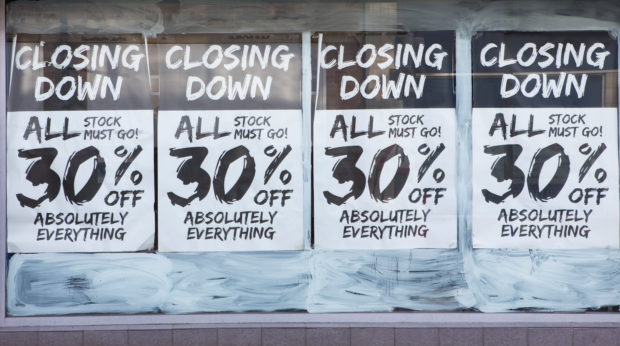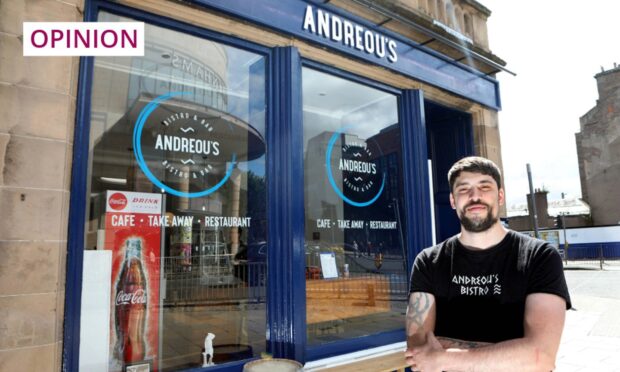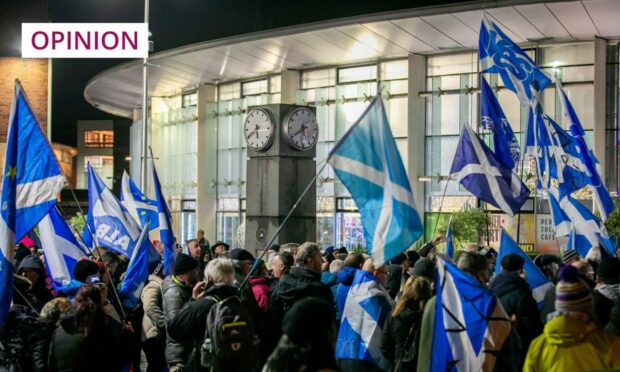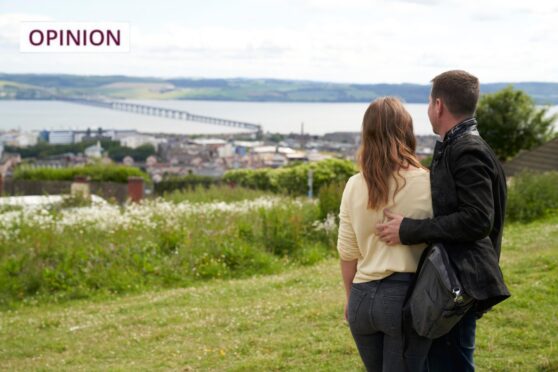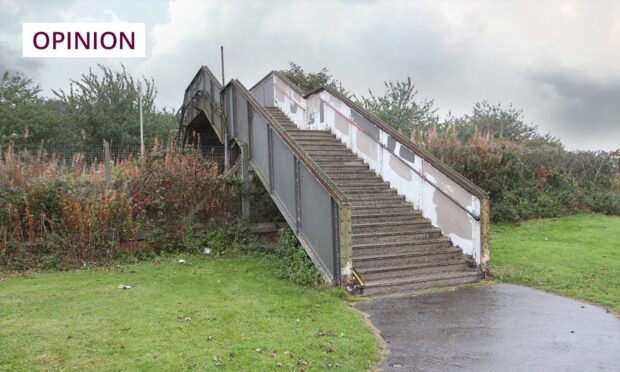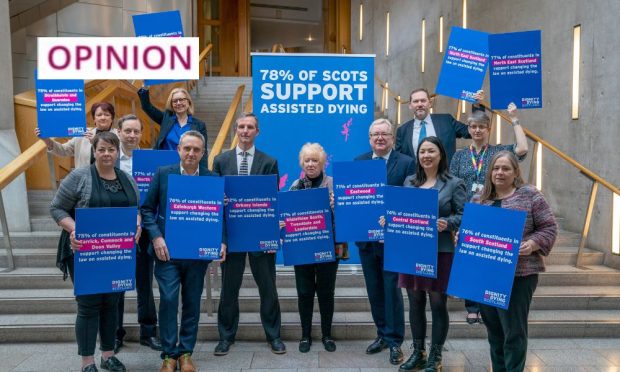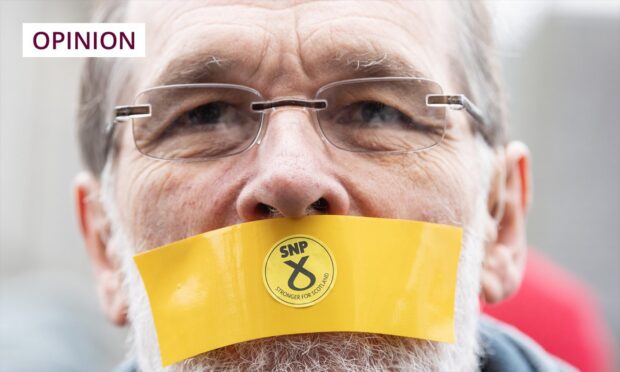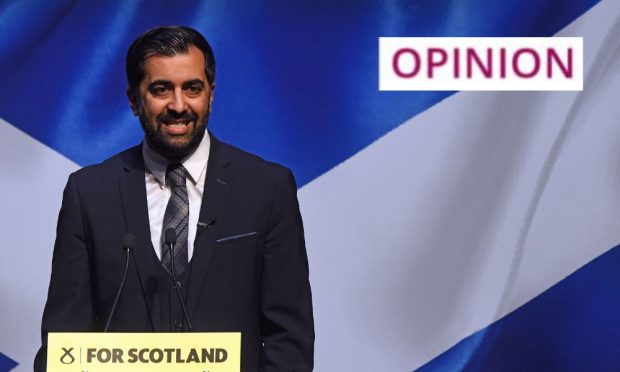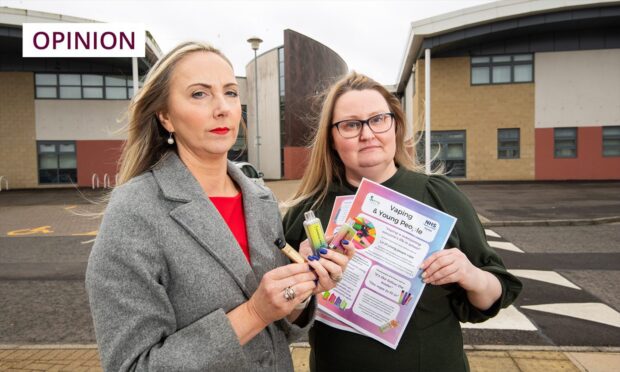Sir, – What shocking figures we’re seeing for the closing of High Street shops and the casting aside of shop assistants on to the scrapheap of unemployment (“New report showing 1,300 retail jobs lost in Tayside and Fife”, The Courier, October 25).
The numbers of those job losses for Angus, Dundee, Perth – and especially Fife – are horrendous.
According to a study by the Scottish Retail Consortium (SRC), from 2011-17, some 1,300 retail jobs have been lost in Tayside and Fife.
In the last few years 126 shops have closed their doors in Fife, leaving 700 people looking for work.
The knock-on social implications must be immense.
While it is obviously difficult to turn clocks back, the question we must surely ask is: “What can we do to slow down the number of closures?”
Then, hopefully, we might be able to reverse matters to some degree.
The solution is simple in one way and complex in another.
The simple part is that we must initially tax the internet giants, who are siphoning off High Street trade, in a realistic manner, and collect from them a much greater percentage of the enormous tax-free profits that are being passed back to “head offices” in other countries.
That will result in the prices of goods in shops being closer to internet prices.
The more complex part of the operation is to wean people away from choosing items from the internet, only to find them unsatisfactory and having to return them.
That is obviously bothersome and time-consuming when compared with the alternative of seeing an item in a shop and accepting or rejecting it on the spot.
At the end of the day, matters must be arranged so the cost of items bought from local shops is similar to goods purchased on the internet.
Archibald A Lawrie.
5 Church Wynd,
Kingskettle, Fife.
‘Exam question’ to puzzle over
Sir, – Education was to be the touchstone policy by which First Minister Nicola Sturgeon and the SNP asked to be judged.
How embarrassing, therefore, that our ranking by international standards has dropped on her watch.
Here’s my suggestion for an examination question that could save us from ruin.
You are a member of two business partnerships. Partnership ‘A’ buys 60% of your goods and services (£48.9 billion), Partner ‘B’ buys 18% (£14.9 billion).
You can no longer be a member of both partnerships.
Which one should you leave?
Answers to Nicola Sturgeon, please.
Denis Munro.
Beaumont House,
St John’s Place, Perth.
Scotland is a beacon of hope
Sir, – I notice Robert I G Scott and others on The Courier letters pages are continuing to criticise the Scottish Government, the Scottish economy and, by implication, the Scots themselves.
If I were a Scot I would find these letters very insulting.
What these correspondents never do is to explain the benefits of continuing to be ruled by the shambles of a parliament in Westminster.
They run down Scottish institutions but fail to mention that these same institutions are worse south of the border.
They run down the Scottish economy, but fail to explain that this is a result of much of our money disappearing to London, never to be seen again.
Whatever the problems are here, they will only be solved when the people of Scotland have control over their own destiny.
Scotland does not need any help from others to become a beacon of hope in the unstable world that we live in.
Andrew Collins.
Ladyburn House,
Skinners Steps, Cupar.
Our words over Americanisms
Sir, – I overheard this conversation in my local café at the weekend.
An older person at a table: “You can go guising during the week.”
Young child at the same table: “What’s guising?”
Another older person at table: “It’s another word for trick or treat.”
Although Halloween has never been huge in Britain, it’s obviously a massive event in the USA, but surely our children should be more aware of our Scottish words than the Americanisms that surround these annual traditions.
Eric Travers.
38 Gellatly Road,
Dunfermline.
Brexit, Scexit, it’s endless noise
Sir, – The vexatious issues of Brexit and Scexit continue to dominate our media while our highly paid politicians are no nearer to reaching a collective agreement which would demonstrate that they care more about the national wellbeing than they do about self and party interest.
There is much talk about the “Brexit Deal”.but no one that I hear and see in the media can define what exactly is meant by this “Deal”!
It seems just another example of bandwagon spiel that everyone talks about, but no one fully understands.
My view would be that after the UK leaves the EU, that is the time to be striking a deal for future UK foreign policy relationships.
This would include trade, people movement, security co-operation, etc.
Meanwhile, regarding Scexit, one wonders when we may ever see from the SNP a repeat of its “White-Paper” that might attempt to set down the basic pros and cons of the “Deal” that would be necessary, were Scotland to secede from the UK.
All we ever hear are words and opinions that are not supported by factual, independent research. How long must we tolerate the Bannockburn attitude?
The current performance of our politicians, particularly in the opposition parties, is grotesquely inadequate.
And a Lib-Dem propaganda leaflet drops through my letterbox this morning, prophesying that Jo Swinson will be the next prime minister of the UK. Some hope!
Derek Farmer.
Knightsward Farm,
Anstruther.
The truth of wind turbines
Sir, – Dr G M Lindsay’s description of the near-uselessness of wind-powered renewables (“Not a turbine turning for miles”, Letters, The Courier, October 24) is essential reading.
However, there are additional disappointments from wind turbines.
Initial hopes of their benefits included cheap, reliable, free wind-based power, stimulation of local employment and, especially, reductions in release of the greenhouse gases.
In fact, their electricity depends on intermittent windpower, their hardware is made abroad and imported and, taking account of CO2 release from back-up fossil-fuelled generation and during manufacture, installation and servicing, they do not save on greenhouse gases.
No one knows who will pay for their demolition, after a 15 to 25-year lifespan.
Additionally, they “contaminate” the land and seascapes and kill much avian wildlife, especially bats, seabirds and raptors.
The late Professor Sir David MacKay, government scientific adviser, told politicians not to touch them pending vast improvements necessary in electricity storage.
This didn’t happen.
Charles Wardrop.
111 Viewlands Rd West, Perth.
